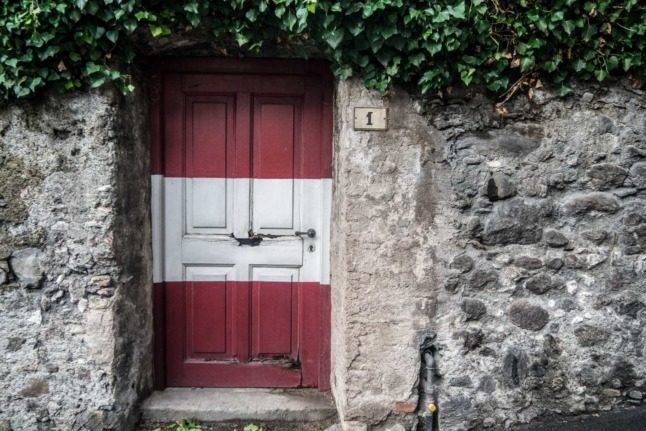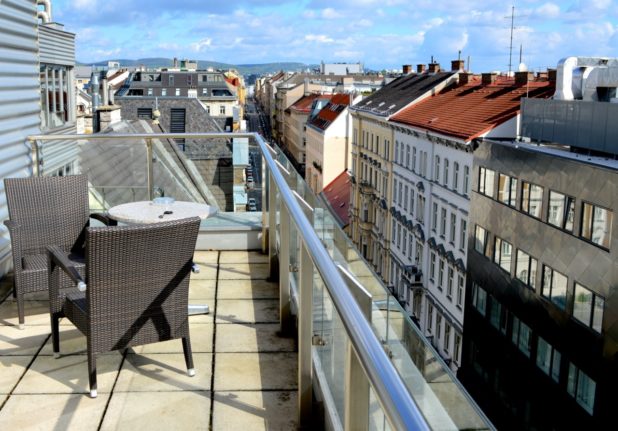In June 2021, Austria’s Social Democrats kicked off a debate on citizenship by demanding the rules for naturalisation be relaxed.
Among other things, the party argued that children born in Austria to long-term legal residents should get citizenship, while demanding that the period of waiting for naturalisation should be reduced.
READ MORE: Will Austria implement easier citizenship rules?
The demand triggered a debate in Austria about whether citizenship rules should be relaxed – and why the process was so hard.
Here’s what you need to know.
What makes the rules so strict?
At ten years’ continuous residence, Austria has one of the longest naturalisation processes of any European country, making it a slightly less attractive option for anyone looking for a shortcut to EU citizenship.
Also, being born on Austrian soil does not secure you citizenship unlike in many other countries.
Currently, only children born to an Austrian citizen mother automatically become Austrian citizens themselves at birth.
But if only the father is Austrian and the parents are not married, then an acknowledgement of paternity (Vaterschaftsanerkenntnis) can be made for the child to become Austrian.
Another reason is the strict rules which prohibit applicants from taking state support, with those who have taken state support in the period before applying often denied citizenship.
Lawyer Peter Marhold told Der Standard that the rules prevent people taking state support are so strict that in one example, someone who had taken time off work to care for an ailing grandparent was denied citizenship because it was deemed that the person benefited from his grandmother being on social support.
Another hurdle is the rule preventing people from being absent from the country for any more than 20 percent of the time before applying.
One woman who had lived in Austria for 20 years was denied because she was posted abroad by her Austrian employers for a three year period, Marhold said.
There are also strict rules which prevent people from having a criminal record. One taxi driver who had crossed the speed limit twice marginally was denied naturalisation, Marhold told Der Standard.
Delays are also common and can run into several years.
Combined with high application fees and the fact that, like Germany and Spain, Austria has strict rules against dual nationality, it’s perhaps unsurprising that the Austrian citizenship is one of the least applied-for citizenships in Europe.
In the wake of Brexit, however, the number of Brits applying for an Austrian passport has been steadily rising.
READ MORE: What you need to know about applying for Austrian citizenship
If you do want to become a naturalised Austrian and think you meet the requirements, you’ll need to fill in an application form and submit a range of documents, including your passport, birth certificate (translated into German), proof of your Austrian address and uninterrupted residency in the country, B1 German and a completed citizenship test.
You’ll also need to demonstrate that you have a positive attitude towards Austria and can support yourself financially without relying on the state.
What is the debate – and will anything actually change?
Austria’s opposition SPÖ party (Social Democrats of Austria) is calling for easier access to Austrian citizenship.
The party argues there should be a legal right to citizenship after six years of legal residence, provided all other criteria are met.
At ten years’ continuous residence, Austria has one of the longest naturalisation processes of any European country.
COMPARE: Which European countries have the toughest rules for gaining citizenship?
The SPÖ also want children born in Austria to automatically receive citizenship if one parent has been legally resident in Austria for five years.
In cases like this, children can also have dual citizenship.
The party also called for federal government fees of (currently €1,115 euros) for naturalisation to be canceled and individual state fees, to be standardised at a correspondingly low level.
However, while the centre-right SPÖ may be in favour, the proposals are also subject to significant opposition.
COMPARE: Which European countries have the toughest rules for gaining citizenship
Interior Minister Karl Nehammer and Integration Minister Susanne Raab (both from the centre-right ÖVP) rejected the plans.
The ÖVP has actually called for the period required for naturalisation to be extended to 25 years.
Herbert Kickl, the new leader of the far-right FPÖ, criticised the plans and said it would bring “new voters through naturalisations on the assembly line”.
Given the opposition, it is unlikely that the plans would become incorporated under the current government, but they may become a key plank in the Social Democrats policies in the lead up to the next Austrian election in 2024 – particularly considering the degree to which they are supported by the SPÖ.



 Please whitelist us to continue reading.
Please whitelist us to continue reading.
Member comments